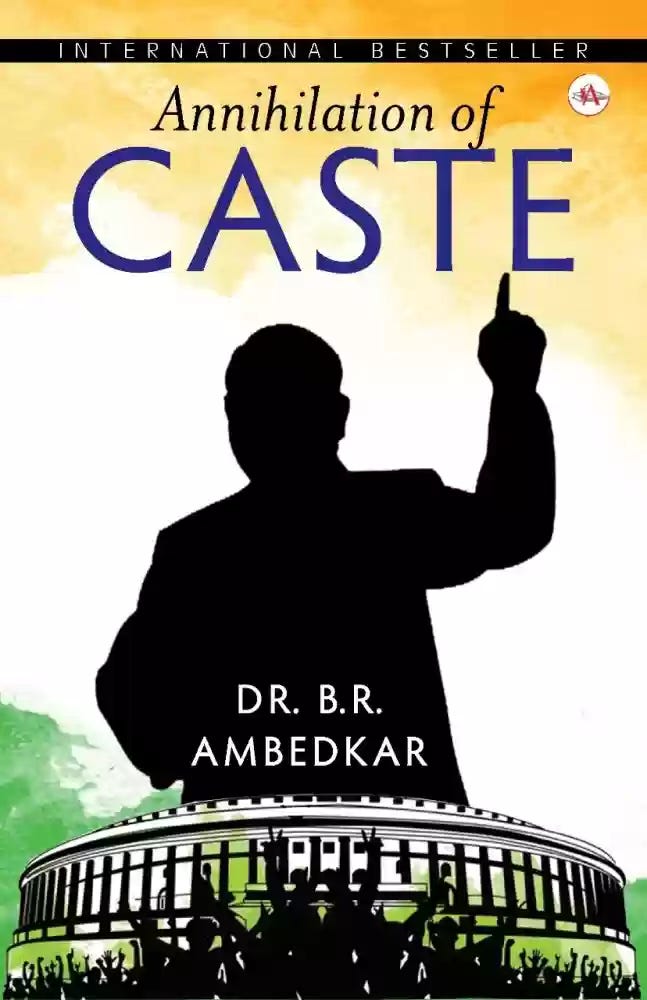B.R. Ambedkar’s Annihilation of Caste critiques the rigid caste system in India, advocating for social equality and the dismantling of caste barriers. Ambedkar argues that true democracy cannot exist alongside caste discrimination and calls for a fundamental transformation in societal structures to achieve justice and equality for all individuals.
Highlights:
1. Caste System Critique
2. Call for Equality
3. Social Justice Advocacy
4. Democracy and Caste
5. Need for Reform
6. Emphasis on Education
7. Collective Responsibility
Key Insights:
1. Caste System Critique
Ambedkar exposes the inherent injustices of the caste system, arguing it perpetuates social hierarchy and discrimination, which must be eradicated for society to progress.
2. Call for Equality
He emphasizes that equality is not merely a legal right but a social necessity that requires active dismantling of oppressive systems, urging society to embrace a more inclusive framework.
3. Social Justice Advocacy
Ambedkar advocates for social justice as a fundamental human right, suggesting that without it, marginalized communities will continue to suffer systemic oppression.
4. Democracy and Caste
He argues that a true democracy cannot coexist with the caste system, as it contradicts the principles of liberty, equality, and fraternity essential for democratic governance.
5. Need for Reform
Ambedkar calls for significant reforms in social structures and cultural practices to dismantle caste barriers, highlighting that mere legislative changes are insufficient.
6. Emphasis on Education
He underscores the transformative power of education in empowering marginalized communities, suggesting that awareness and knowledge are vital for societal change.
7. Collective Responsibility
Ambedkar stresses that the fight against caste discrimination requires collective action from all societal members, fostering solidarity and mutual respect for progress.




